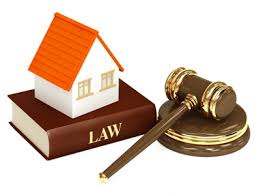 September 2019
September 2019
Laws are changing to reflect growing interest in condo living and the mini-governments that oversee condo corporations.
The existence of ownership within a high-rise building necessitates existence of a local “government” to oversee it. The Condo Act provides owners with the right to participate in governance of their home.
Douglas Harris, a University of British Columbia law professor and author of A Property Law Reader, 4th Edition, researches the legal structure of condo ownership. According to Mr. Harris, condo living is resulting in our privatizing a large aspect of local government. Courts and legislatures throughout Canada are revisiting the nature of property because of the popularity of condo living.
Liron Daniels, President of Nadlan-Harris Property Management, cites disputes among neighbours as an example of how this privatization works. “Traditionally, home owners have contacted police or initiated a lawsuit when unable to resolve a dispute. Today, condo owners rely on condo management to enforce declaration, bylaws and rules, and any other potential condo documents. Courts have supported this by finding condo residents failing to abide by these documents guilty of a crime.” Penalties can include jail, forced eviction or forced sale of a condo. These remedies are unique to condo living and do not exist for owners of a single family home.



